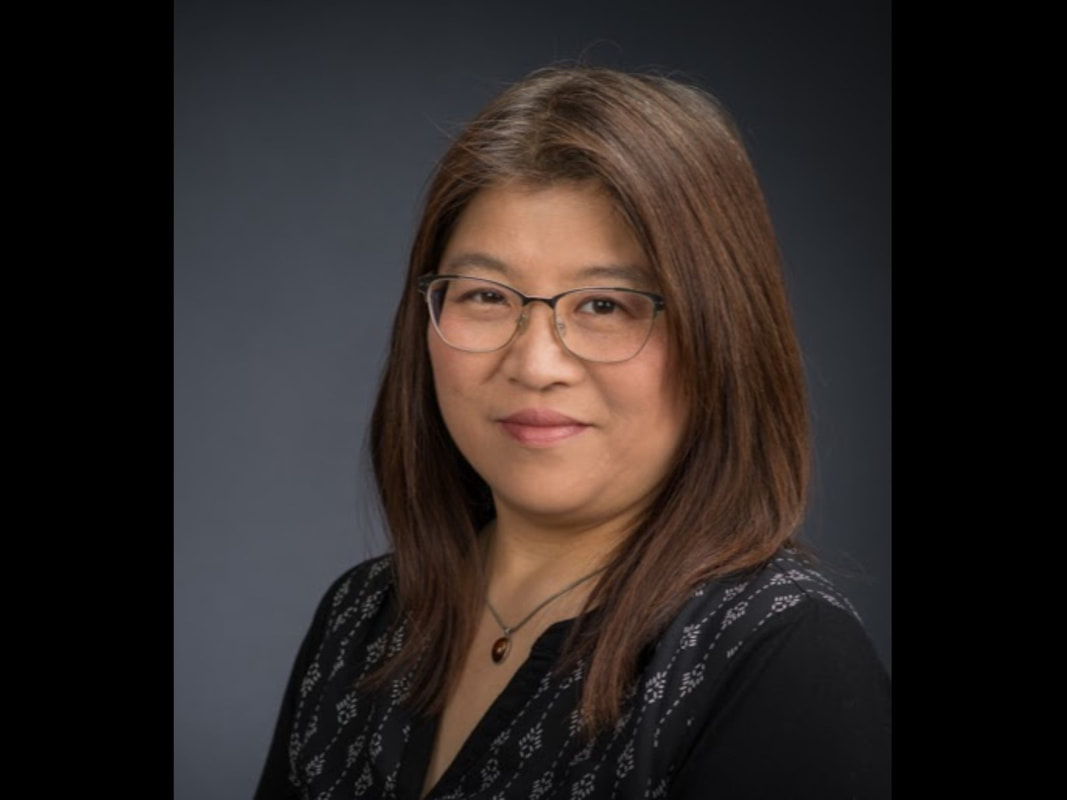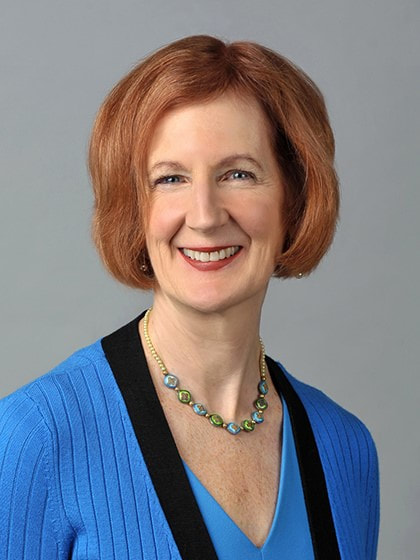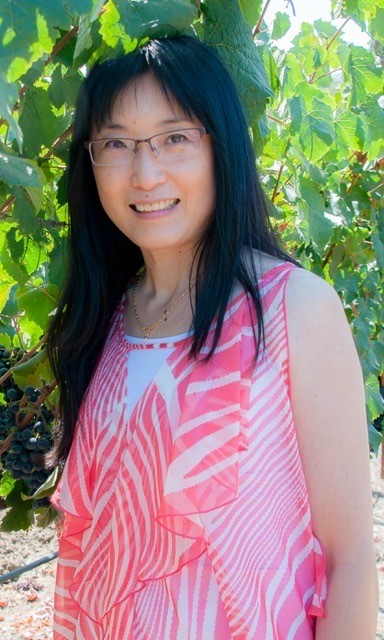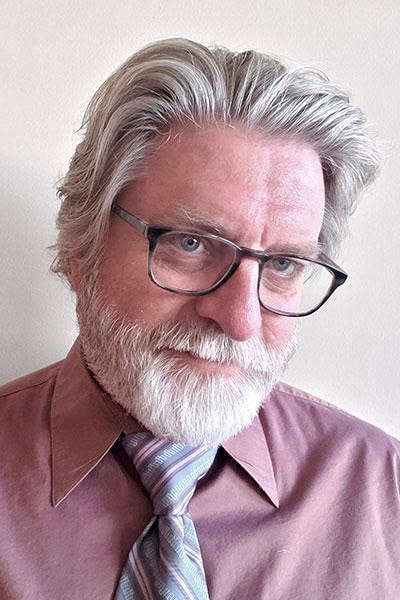Monthly Programs
|
NWSMTA meets monthly, September through May. Meetings are held at various locations. Please check the location for each month. In December we have our holiday party, and in May we have our spring luncheon. Our business meeting begins at 9:45, followed by a special program at 10:30. Come join us!
Program Listing 2023-2024
Program Listing 2023-2024
Monday, September 18, 2023, 9:45 AM
Rolling Meadows Library/hybrid Zoom format for business meeting only - the “program” is an in-person only event
Rolling Meadows Library/hybrid Zoom format for business meeting only - the “program” is an in-person only event
"Spring Cleaning in September”
“Spring Cleaning in September” will be a social event/ music sale to kick off our 2023 -2024 NWSMTA monthly meetings schedule. There will be refreshments (please BYOB!), time to browse music, information about our wonderful events, and a fun activity that will help us all get better acquainted.
For music sellers:
For music buyers:
We’re looking forward to seeing everyone for the start of another great year!
“Spring Cleaning in September” will be a social event/ music sale to kick off our 2023 -2024 NWSMTA monthly meetings schedule. There will be refreshments (please BYOB!), time to browse music, information about our wonderful events, and a fun activity that will help us all get better acquainted.
For music sellers:
- Label all music with price and your name
- Bring an envelope with your name on it to collect payments. Buyers will be on the honor system.
- Let me know approximately how much music/number of boxes you will be bringing so I can plan ahead for set up [email protected]
For music buyers:
- Please bring cash (lots of singles!) or check
We’re looking forward to seeing everyone for the start of another great year!
Monday, October 16, 2023 9:45 AM
Rolling Meadows Library/Zoom
All that Jazz Committee
Maureen Flood, Justyna Weirich, Deborah Lynch: "Jazz Combo Experience"
Maureen Flood, Deb Lynch, and Justyna Weirich will talk about -
Rolling Meadows Library/Zoom
All that Jazz Committee
Maureen Flood, Justyna Weirich, Deborah Lynch: "Jazz Combo Experience"
Maureen Flood, Deb Lynch, and Justyna Weirich will talk about -
- the history of the “Jazz Combo Experience” event
- the benefits of the Jazz Combo Experience
- show videos of live performances
- discuss proven ways to work with students on preparation for the event
- how to prepare a lead sheet
Monday, November 20, 2023, 9:45 AM
Rolling Meadows Library/Zoom
Rolling Meadows Library/Zoom
Fumi Nakayama: “Developing Piano Skills with the Dalcroze Method”
Music-making requires our fingers, wrists, arms, and our entire bodies engaged to play in a way that reflects your mind, how you want to play, and how you want to express the music. But, do we always practice with our entire bodies? Are we aware of how we are using our bodies when we play? In general, we tend to focus on our finger movements in isolation as we practice etudes or other technical exercises. Jaques-Dalcroze developed a method of music education that focuses on facilitating students’ instinctive movement-based responses to music. When we hear music, how can we convey the dynamics, tonal qualities, melodies, etc. through our bodily gestures? We might rise up on our toes when the melody rises in pitch or punctuate the accents with sharp punching motions. We may respond to swinging rhythms by moving side to side, or swinging our arms back and forth. By learning how to move our entire bodies to music efficiently and expressively, drawing upon Dalcroze principles and techniques, we can allow our bodily movements to inform how we play melodious lines — to make dramatic contrasts in performance, create a variety of tone colors utilizing finger touches and gestures, and, most importantly, perform with ease.
Please join us in clothes you feel comfortable moving in! We will be moving around for most of the class. If you can, bring dance shoes (e.g., leather or canvas ballet/jazz shoes) — if you don’t have any, a similar pair of soft-soled shoes or bare feet will work just as well.
Fumi Nishikiori-Nakayama earned her Bachelor of Music in Piano and Harpsichord degree from the Chicago Musical College of Roosevelt University, and Master of Music in Piano and Early Music/Harpsichord from Indiana University, where she was the recipient of numerous awards including the prestigious Rudolph Ganz Memorial Award, and Willi Apel Scholarship. She has studied piano with Ludmila Lazar, Shigeo Neriki, harpsichord with David Schrader, Elisabeth Wright, fortepiano with Elizabeth Wright and Kenneth Drake, chamber music with Rostislav Dubinsky, early chamber music with Stanley Ritchie, and conducting with Thomas Baldner and Imre Pallo.
As a conductor, she has conducted Indiana University Symphony Orchestra, IU Ad-hoc Orchestra, IU Opera Workshops. Her love for vocal music and theater led her to remain as one of the opera coaches for Indiana University Opera Theater for 6 years.
Currently Ms. Nishikiori is an adjunct faculty member of the Carthage Music Department and the UW-Parkside. She has received the Dalcroze Certification from Juilliard School Dalcroze Institute, and the Dalcroze license from Dalcroze School of Music and Movement, Dallas, Texas, where she currently serves on the teaching faculty. She often gives demonstrations and lectures to music teachers and students in the Midwest. She frequently collaborates performing music as a pianist, as well as a harpsichordist, with greater Milwaukee and Chicago area artists.
Music-making requires our fingers, wrists, arms, and our entire bodies engaged to play in a way that reflects your mind, how you want to play, and how you want to express the music. But, do we always practice with our entire bodies? Are we aware of how we are using our bodies when we play? In general, we tend to focus on our finger movements in isolation as we practice etudes or other technical exercises. Jaques-Dalcroze developed a method of music education that focuses on facilitating students’ instinctive movement-based responses to music. When we hear music, how can we convey the dynamics, tonal qualities, melodies, etc. through our bodily gestures? We might rise up on our toes when the melody rises in pitch or punctuate the accents with sharp punching motions. We may respond to swinging rhythms by moving side to side, or swinging our arms back and forth. By learning how to move our entire bodies to music efficiently and expressively, drawing upon Dalcroze principles and techniques, we can allow our bodily movements to inform how we play melodious lines — to make dramatic contrasts in performance, create a variety of tone colors utilizing finger touches and gestures, and, most importantly, perform with ease.
Please join us in clothes you feel comfortable moving in! We will be moving around for most of the class. If you can, bring dance shoes (e.g., leather or canvas ballet/jazz shoes) — if you don’t have any, a similar pair of soft-soled shoes or bare feet will work just as well.
Fumi Nishikiori-Nakayama earned her Bachelor of Music in Piano and Harpsichord degree from the Chicago Musical College of Roosevelt University, and Master of Music in Piano and Early Music/Harpsichord from Indiana University, where she was the recipient of numerous awards including the prestigious Rudolph Ganz Memorial Award, and Willi Apel Scholarship. She has studied piano with Ludmila Lazar, Shigeo Neriki, harpsichord with David Schrader, Elisabeth Wright, fortepiano with Elizabeth Wright and Kenneth Drake, chamber music with Rostislav Dubinsky, early chamber music with Stanley Ritchie, and conducting with Thomas Baldner and Imre Pallo.
As a conductor, she has conducted Indiana University Symphony Orchestra, IU Ad-hoc Orchestra, IU Opera Workshops. Her love for vocal music and theater led her to remain as one of the opera coaches for Indiana University Opera Theater for 6 years.
Currently Ms. Nishikiori is an adjunct faculty member of the Carthage Music Department and the UW-Parkside. She has received the Dalcroze Certification from Juilliard School Dalcroze Institute, and the Dalcroze license from Dalcroze School of Music and Movement, Dallas, Texas, where she currently serves on the teaching faculty. She often gives demonstrations and lectures to music teachers and students in the Midwest. She frequently collaborates performing music as a pianist, as well as a harpsichordist, with greater Milwaukee and Chicago area artists.
Monday, January 15, 2024, 9:45 AM
Rolling Meadows Library/Zoom
Rolling Meadows Library/Zoom
Dr. Susan Osborn: Using Photography and Architectural Imagery to Enhance our Teaching”.
In an artistic world that places increasing value on interdisciplinary study, we as teachers can enhance our teaching by the use of other creative genres. As a musician, photographer and architectural docent in Chicago, I encounter many opportunities to see how these genres overlap. As a result, I have started to think about how the use of visual images can enhance our teaching of music. Using photographic images and architectural references in a lesson can enlighten the learning process of students in many ways. In this presentation, I will demonstrate the similarities of music with the visual arts - areas including composition, storyline, style, and form. I will give practical examples as to how to incorporate visual images into the lesson, and to incorporate photos and architectural images in order to
1) communicate the emotion behind a piece
2) teach the form of a piece
3) teach the style of a piece
4) engage the student in the process of creating images to express a piece
Dr. Susan Osborn is the Director of the Northwestern Music Academy, the community music division of Northwestern University. She has taught private and group piano to students of all ages and levels for over 30 years. Dr. Osborn is also on the college Keyboard Skills faculty of Northwestern University's Bienen School of Music. During the summer, she teaches piano at Interlochen Arts Camp. Dr. Osborn is an active performer, adjudicator and clinician, both locally and nationally. She received her D.M. in Piano Performance and Pedagogy from Northwestern University and holds degrees from the University of North Carolina at Chapel Hill, Smith College, and The New School for Music Study. Her pedagogy teachers included Frances Clark, Louise Goss, Same Holland, Frances Larimer, and Elvina Pearce. Additionally, she studied at the American Conservatory at Fontainebleau, France, and Ecole Normale de Musique, Paris, as a recipient of the Harriet Hale Woolley Scholarship. Dr. Osborn studied performance with Robert Miller, Serge Petitgirard, Michael Zenge, Phyllis Rappeport, Fritz Whang, and David Kaiserman. As a photographer and Chicago architectural tour guide, she specializes in interdisciplinary topics that combine these passions with music. Among these topics are “Teaching: What We Can Learn from the Actor,” and “Imagery and Artistry: Using Photography and Architecture to Enhance Your Piano Teaching.”
Click here for the presentation handout.
In an artistic world that places increasing value on interdisciplinary study, we as teachers can enhance our teaching by the use of other creative genres. As a musician, photographer and architectural docent in Chicago, I encounter many opportunities to see how these genres overlap. As a result, I have started to think about how the use of visual images can enhance our teaching of music. Using photographic images and architectural references in a lesson can enlighten the learning process of students in many ways. In this presentation, I will demonstrate the similarities of music with the visual arts - areas including composition, storyline, style, and form. I will give practical examples as to how to incorporate visual images into the lesson, and to incorporate photos and architectural images in order to
1) communicate the emotion behind a piece
2) teach the form of a piece
3) teach the style of a piece
4) engage the student in the process of creating images to express a piece
Dr. Susan Osborn is the Director of the Northwestern Music Academy, the community music division of Northwestern University. She has taught private and group piano to students of all ages and levels for over 30 years. Dr. Osborn is also on the college Keyboard Skills faculty of Northwestern University's Bienen School of Music. During the summer, she teaches piano at Interlochen Arts Camp. Dr. Osborn is an active performer, adjudicator and clinician, both locally and nationally. She received her D.M. in Piano Performance and Pedagogy from Northwestern University and holds degrees from the University of North Carolina at Chapel Hill, Smith College, and The New School for Music Study. Her pedagogy teachers included Frances Clark, Louise Goss, Same Holland, Frances Larimer, and Elvina Pearce. Additionally, she studied at the American Conservatory at Fontainebleau, France, and Ecole Normale de Musique, Paris, as a recipient of the Harriet Hale Woolley Scholarship. Dr. Osborn studied performance with Robert Miller, Serge Petitgirard, Michael Zenge, Phyllis Rappeport, Fritz Whang, and David Kaiserman. As a photographer and Chicago architectural tour guide, she specializes in interdisciplinary topics that combine these passions with music. Among these topics are “Teaching: What We Can Learn from the Actor,” and “Imagery and Artistry: Using Photography and Architecture to Enhance Your Piano Teaching.”
Click here for the presentation handout.
Monday, February 19, 2024
Virtual Business Meeting only (or snowdate for winter programs)
Virtual Business Meeting only (or snowdate for winter programs)
Monday, March 18, 2024, 9:45
***Countryside Church, 1025 N Smith St., Palatine/Zoom
***Countryside Church, 1025 N Smith St., Palatine/Zoom
DR. CHRISTINA TIO
REPURPOSING A PARTY PLEASER: KEYBOARD SKILLS, MUSICAL ARTISTRY, AND... THE HAPPY BIRTHDAY SONG
PLEASE NOTE: there are two changes regarding the March 18 meeting.
1. We will be meeting at 9:45 AM at Countryside Church, 1025 N. Smith St, Palatine
2. Our clinician with be NWSMTA’s own Dr. Christina Tio, who will be presenting “Repurposing a Party Pleaser: Keyboard Skills, Musical Artistry, and… the Happy Birthday Song”
This presentation seeks to share strategies of using the "Happy Birthday" song for teaching hands-on theoretical concepts, developing an appreciation for basic improvisation and nurture musical artistry. By way of a 7-step process, students of ALL ages and abilities may be guided to listen, sing, and play the HB song around the Circle of Fifths. The illustrations will also include excerpts of lesson videos demonstrating real learning situations, along with sample recordings of creative renditions by students of various playing levels.
Click here for the handout for the presentation.
Christina Tio earned her piano performing and teaching diplomas, BA (Hons) and MMus in Piano Performance in the United Kingdom at Royal Birmingham Conservatoire and Reading University respectively, as a student of Frank Wibaut of Royal Academy of Music in London. Her interest in musicology, and the award of a scholarship led her into musicological research with Nicholas Cook, under whose guidance, she completed her PhD in Musicology at the University of Southampton, UK.
First began teaching the piano at age 14, Christina maintained a studio all through her school and college years. Before moving to Chicago, she also taught for five years at colleges and universities in Kuala Lumpur, Malaysia, including Universiti Malaya (UM), University College Sedaya International (UCSI) and National Academy of Arts (ASWARA).
Dr. Tio has been a regular session presenter. Recent conference presentations include the Suzuki Association of the Americas (SAA) Leadership Retreat in May 2019, ISMTA Conference in November 2019 and a Poster at MTNA Virtual Conference 2022. She also presents regularly at local Music Teacher Association monthly meetings, at Naperville MTA in October 2019 and March 2022, CAMTA in June 2022, NSMTA in September 2020 and February 2023, and WSMTA in September 2022. Dr. Tio has also served as a Piano Masterclass clinician at the biennial SAA Teachers Conference in Minneapolis in 2018. She enjoys teaching and mentoring students, parents and fellow teachers at workshops and summer institutes around the US, as well as in Singapore.
Passionate about the Suzuki philosophy, Christina considers parent education and developing musicality her forte. She enjoys a thriving piano studio characterized by excellence and joy, where music making is appreciated as a lifelong endeavor. Her students frequently receive awards at local, regional, national and international competitions, as well as appearance on a national broadcast of NPR’s From the Top. They also perform extensively in the community to warm critical acclaim. Prize winnings have also led her students to perform at SAA Conferences in Minneapolis (2014, 2016, 2018 & 2024 - forthcoming), Alice Millar Chapel at Northwestern University, IL (2017), Carnegie Hall’s Weill Hall (2019, 2021), Merkin Hall in Kaufman Center in New York (2019), Beethoven Haus in Bonn, Germany (2021), MTNA Virtual National Conference (2022), Koerner Hall in Toronto (2023) as well as Royal Albert Hall in London (2024 – forthcoming). Christina is currently a Suzuki Piano faculty at the Music Institute of Chicago. Aside from in-person lessons and group classes, she also teaches online with students in Kansas City, Colorado and California, in the UK and in Singapore. Also a homeschool mom since 2013, she lives in Skokie, IL with her husband and son.
REPURPOSING A PARTY PLEASER: KEYBOARD SKILLS, MUSICAL ARTISTRY, AND... THE HAPPY BIRTHDAY SONG
PLEASE NOTE: there are two changes regarding the March 18 meeting.
1. We will be meeting at 9:45 AM at Countryside Church, 1025 N. Smith St, Palatine
2. Our clinician with be NWSMTA’s own Dr. Christina Tio, who will be presenting “Repurposing a Party Pleaser: Keyboard Skills, Musical Artistry, and… the Happy Birthday Song”
This presentation seeks to share strategies of using the "Happy Birthday" song for teaching hands-on theoretical concepts, developing an appreciation for basic improvisation and nurture musical artistry. By way of a 7-step process, students of ALL ages and abilities may be guided to listen, sing, and play the HB song around the Circle of Fifths. The illustrations will also include excerpts of lesson videos demonstrating real learning situations, along with sample recordings of creative renditions by students of various playing levels.
Click here for the handout for the presentation.
Christina Tio earned her piano performing and teaching diplomas, BA (Hons) and MMus in Piano Performance in the United Kingdom at Royal Birmingham Conservatoire and Reading University respectively, as a student of Frank Wibaut of Royal Academy of Music in London. Her interest in musicology, and the award of a scholarship led her into musicological research with Nicholas Cook, under whose guidance, she completed her PhD in Musicology at the University of Southampton, UK.
First began teaching the piano at age 14, Christina maintained a studio all through her school and college years. Before moving to Chicago, she also taught for five years at colleges and universities in Kuala Lumpur, Malaysia, including Universiti Malaya (UM), University College Sedaya International (UCSI) and National Academy of Arts (ASWARA).
Dr. Tio has been a regular session presenter. Recent conference presentations include the Suzuki Association of the Americas (SAA) Leadership Retreat in May 2019, ISMTA Conference in November 2019 and a Poster at MTNA Virtual Conference 2022. She also presents regularly at local Music Teacher Association monthly meetings, at Naperville MTA in October 2019 and March 2022, CAMTA in June 2022, NSMTA in September 2020 and February 2023, and WSMTA in September 2022. Dr. Tio has also served as a Piano Masterclass clinician at the biennial SAA Teachers Conference in Minneapolis in 2018. She enjoys teaching and mentoring students, parents and fellow teachers at workshops and summer institutes around the US, as well as in Singapore.
Passionate about the Suzuki philosophy, Christina considers parent education and developing musicality her forte. She enjoys a thriving piano studio characterized by excellence and joy, where music making is appreciated as a lifelong endeavor. Her students frequently receive awards at local, regional, national and international competitions, as well as appearance on a national broadcast of NPR’s From the Top. They also perform extensively in the community to warm critical acclaim. Prize winnings have also led her students to perform at SAA Conferences in Minneapolis (2014, 2016, 2018 & 2024 - forthcoming), Alice Millar Chapel at Northwestern University, IL (2017), Carnegie Hall’s Weill Hall (2019, 2021), Merkin Hall in Kaufman Center in New York (2019), Beethoven Haus in Bonn, Germany (2021), MTNA Virtual National Conference (2022), Koerner Hall in Toronto (2023) as well as Royal Albert Hall in London (2024 – forthcoming). Christina is currently a Suzuki Piano faculty at the Music Institute of Chicago. Aside from in-person lessons and group classes, she also teaches online with students in Kansas City, Colorado and California, in the UK and in Singapore. Also a homeschool mom since 2013, she lives in Skokie, IL with her husband and son.
Monday, April 15, 2024, 9:45 AM
Rolling Meadows Library/Zoom
Rolling Meadows Library/Zoom
Dr. Jeff Kleinsorge: “How to Treat a Five-Year-Old as a Pianist Rather Than as a Student”
What if I were to treat a beginning pianist – from the very first lesson – not as a student, but as a pianist? That thought experiment changed the nature of my teaching. The result was a novel sound-before-symbol approach that emphasizes artistic interpretation, sight reading, playing by ear, and an especially heavy emphasis on technique, while slipping in strong doses of ear training and paving the way for important theory follow-ups. It creates independent and informed learners who are capable of polished, gold-medal performances. The presentation will lay out the lesson structure, and then deep-dive into several levels of detail on each of the items: interpretation, sight reading, etc. Examples will come mostly from the first two years of lessons, since these – in the right hands – lay the foundation for everything a pianist will ever do. We’ll nonetheless make important excursions into upper levels, through advanced high school, to see this lesson strategy’s end game.
Dr. Jeff Kleinsorge is the Director of the Preparatory and Community Music Program at Concordia University Chicago, where he also teaches Piano Pedagogy and Keyboard Skills. He spends his summers as a member of the Piano Faculty at the Interlochen Arts Camp. He blends his eclectic academic background in performance, pedagogy, and composition into a unique approach to teaching that produces informed, creative, expressive, and accomplished pianists. Dr. Kleinsorge is currently the president of ISMTA.
What if I were to treat a beginning pianist – from the very first lesson – not as a student, but as a pianist? That thought experiment changed the nature of my teaching. The result was a novel sound-before-symbol approach that emphasizes artistic interpretation, sight reading, playing by ear, and an especially heavy emphasis on technique, while slipping in strong doses of ear training and paving the way for important theory follow-ups. It creates independent and informed learners who are capable of polished, gold-medal performances. The presentation will lay out the lesson structure, and then deep-dive into several levels of detail on each of the items: interpretation, sight reading, etc. Examples will come mostly from the first two years of lessons, since these – in the right hands – lay the foundation for everything a pianist will ever do. We’ll nonetheless make important excursions into upper levels, through advanced high school, to see this lesson strategy’s end game.
Dr. Jeff Kleinsorge is the Director of the Preparatory and Community Music Program at Concordia University Chicago, where he also teaches Piano Pedagogy and Keyboard Skills. He spends his summers as a member of the Piano Faculty at the Interlochen Arts Camp. He blends his eclectic academic background in performance, pedagogy, and composition into a unique approach to teaching that produces informed, creative, expressive, and accomplished pianists. Dr. Kleinsorge is currently the president of ISMTA.




